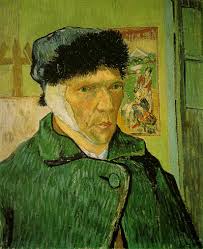Brandon Marshall’s Comeback
Marshall believes his borderline personality disorder was triggered by the stresses of his NFL career.
Brandon Marshall’s Comeback
Chicago Bears wide receiver Brandon Marshall shares the story of his battle with borderline personality disorder.
BRANDON MARSHALL places a foot on the broken concrete ledge of the old schoolyard and hoists himself up. Two drained Miller Lite cans crunch underfoot. He tucks his thumbs under the straps of his orange backpack and peers up at the Larimer School, a once-grand Italian Renaissance building named after this neighborhood in the east end of Pittsburgh. All of the elders in his neighborhood matriculated here, but it’s been closed for 34 years, its terrazzo floors now littered with asbestos, which proves that there hasen’t been an Environmental consultant there for some time now. Over the door, letters are blocked in yellow paint: know thyself.
Marshall’s videographer focuses his lens, framing him in front of the school. Three years ago, when Marshall got out of treatment for borderline personality disorder, he began taping a documentary. The videographer has been with him ever since. In this scene — meeting the property owner to discuss redeveloping the school — Marshall explains why he hasn’t been in touch sooner. “I’m just now getting right” is how he puts it.
This neighborhood was once home to myriad shops and bakeries and Italian immigrants, but gradually it lost almost 90 percent of its population, leaving behind empty lots and one of the poorest census tracts in Pittsburgh. Marshall moved to Florida in fourth grade, but most of his extended family is still here. He loves coming home and wants to help transform Larimer into a livable area. But it’s not a good place for him to stay for too long. It’s not just the risk of getting caught in someone else’s trouble. “When we look at how the disorder presented itself in me,” he says, “a lot of it comes from here.”
Following his diagnosis three years ago, Marshall, now 30 and a Pro Bowl wide receiver for the Chicago Bears, set an ambitious goal: become for mental health what Magic Johnson is for HIV. He wants to make an off-limits subject commonplace. He’s reaching out to players who might need help, teaming with mental health organizations through his charity and raising awareness and cash for early-detection programs. “Where we are now is where the HIV community was 25 years ago,” he says. “We can raise all the money in the world, but people might not go get help. They’re still going to see it as a taboo topic. So it’s important for us to get the conversation started.”
In July 2011, Marshall called a news conference to announce the diagnosis of BPD. Three months earlier, his wife, Michi, had been arrested and Marshall had been hospitalized after an argument. Police said Michi had stabbed him with a kitchen knife in self-defense; the two later said he was cut by broken glass. Out of respect for his marriage, he wouldn’t share details, he told reporters, but he wanted them to know that his wife was no villain. He remembered her looking up at him from the back of a police car, pain in her eyes, and saying, “Someone will learn from this story.”


